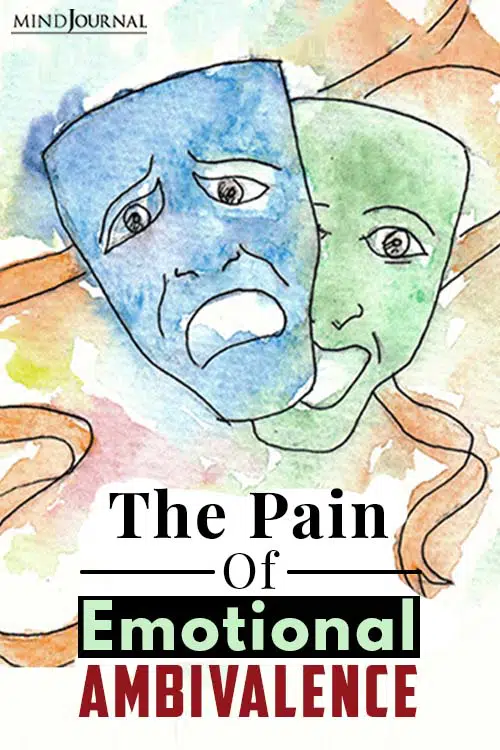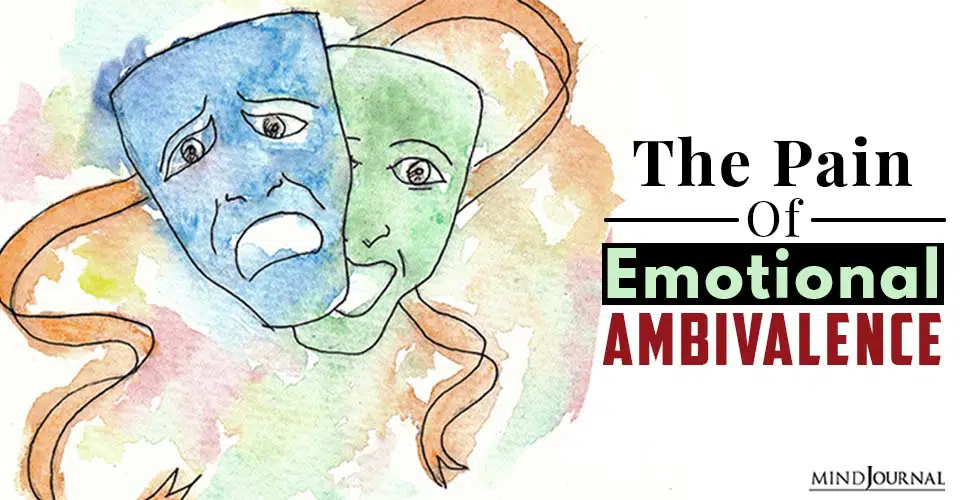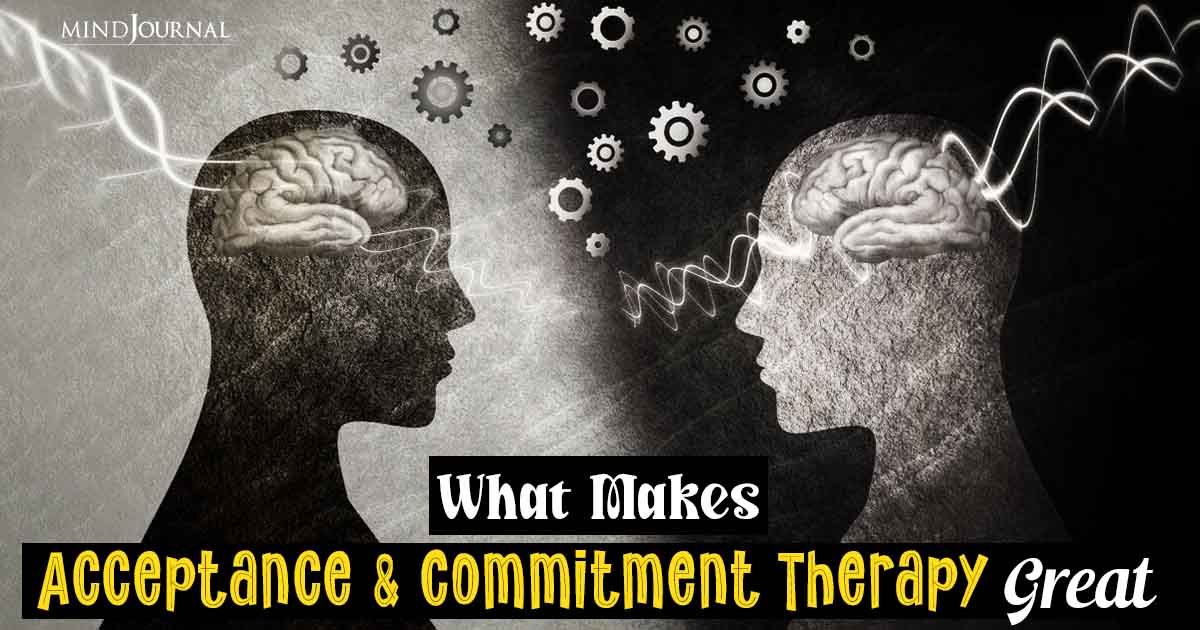Once, when I was in primary school, I saw a few words scribbled on a desk, in an older student’s handwriting: “I love you, and I hate you.” The sentence impressed me greatly. It had never occurred to me previously that one could love and hate somebody at the same time. I had not yet been introduced to the idea of emotional ambivalence.
I now think it likely that part of the reason the words written in ink on the desk in the classroom made such an impression on me was that I had already experienced emotional ambivalence. I just didn’t know that that was what I felt. The sentence at once illuminated parts of my own emotional life and informed me that I was not alone or different: other people—as evidenced by the author of the sentence—could feel that way too.
I already knew at the time that people—small children, especially—might make conflicting statements about their feelings for someone. A child upset that he or she is not getting his or her way might say to a parent or a sibling, “I hate you.” However, I think I grasped intuitively that such statements are often hollow and inauthentic, an expression of powerlessness and frustration.
Related: How To Let Yourself Feel Your Feelings
When we are very young, we don’t have many ways of securing for ourselves the things we want, and we don’t have the power to make other people give us those things either. We somehow learn that we might get our way if we persuade others that our love for them is conditional—that it depends on whether they do as we like. If they don’t, we say we hate them, hoping to inflict enough pain for them to change their minds.
We all, however, including children, may experience true emotional ambivalence. (Freud went so far as to suggest that all children are deeply ambivalent toward a same-sex parent.) We may have positive and negative feelings for the same object at the same time. What I would like to do here is discuss this phenomenon in more detail, focusing on ambivalent attitudes toward people. Why do we ever feel ambivalent?
Sometimes, people’s characters are complex. We like someone’s sense of humor but not her unreliability, or we appreciate a person’s courage but think he lacks compassion. At other times, however, the source of ambivalence is different: it has to do not so much with the other’s character but with the other’s relationship with us specifically.
Thus, you may love an uncle but have the feeling he has a tendency to compare you to his own son, and you find that off-putting, or you love your sister but think she is too flirty with your spouse or else is trying to “steal your friends.”
Emotional ambivalence is often painful, especially ambivalence of the second sort, having to do with your particular relationship with the other, not with the other’s character.
The Roman poet Catullus, who may have been the first author to document the state that interests me here, noted this pain.
In a poem for his lover, whom he called Lesbia (likely not her real name), Catullus wrote:
“I hate and I love. Why I do this, perhaps you ask.
I know not, but I feel it happening and I am tortured.”
An ambivalent relationship with a loved one may be more painful than a plainly bad one. A bad relationship is like cold weather we know how to prepare for—we may either not go out at all (read: cut contact) or else go prepared, dressed appropriately (that is, we activate our defense mechanisms). An ambivalent one is a bit like weather that changes on you. You cannot possibly know what to do or what to wear. Just as you relax, ready to take in the warmth, a cold wave engulfs you.
Related: 5 Signs Of Unhealthy Attachment In Relationships
For some, emotional ambivalence is so painful, that they don’t like it even in art and opt for fiction that does not require holding contradictory attitudes toward the same fictional character. Sometimes, movie directors purportedly set out to create emotionally complex fiction but do not go all the way.
For instance, the movie American Gangster tells the story of a criminal (Denzel Washington) portrayed so sympathetically that the audience is rooting for him instead of having mixed feelings. Perhaps, this is because director Ridley Scott experienced inner resistance at the idea of true ambivalence or perhaps, he did not trust the audience’s ability to entertain emotional complexities.
Still, for a person with a certain taste, emotional ambivalence in the art can give exquisite aesthetic pleasure, though pleasure mixed with some pain. Hardly anyone enjoys emotional ambivalence in real life, however.
Emotional ambivalence may be difficult to recognize in ourselves. It is an attitude that does not entirely make sense: do we love this person or not? We are not sure. We may reach different conclusions on different occasions.
When other people are ambivalent toward us, we may fail to acknowledge that too. Perhaps, we think that only those who have pure, unadulterated love for us have any love at all. When we detect any hostility, hatred, or envy on the part of the other, we may conclude that expressions of love and friendship are inauthentic and untrue. Or we try to explain away the negativity and persuade ourselves that we are imagining it.
Yet, we know from our own case that there are ambivalent attitudes that involve both love for and hatred of another. If we can have such attitudes toward others, it follows that they can have them toward us (unless we suppose that our own psychology is radically different from that of other people).
Related: Signs of True Love & True Relationships
What should we do about emotional ambivalence and the associated pain?
We may, sometimes, be able to free ourselves of it as when a person ambivalent toward a stepparent as a child comes later in life to see the situation from the parents’ point of view. Now an adult herself, perhaps with her own family, she is aware of the difficulties of being a parent, let alone a stepparent, and comes to sympathize with the people who brought her up. The ambivalence gives way to sympathy, appreciation, and love.
Unfortunately, this is not always possible. But something else, I believe, is: we can learn to accept our own ambivalence, without trying to deny either the positive or the negative feelings. I suspect that one of the main reasons emotional ambivalence can be so painful is that we try and fail to get rid of it.
We attempt to persuade ourselves that we have either only positive or only negative feelings toward someone, but that is simply untrue, and we are proven wrong every time. Things may be easier if, like Walt Whitman, we embraced the idea that we contain multitudes; and that others do, too.
For more essays by Iskra Fileva, check out her column at Psychology Today: https://www.psychologytoday.com/us/contributors/iskra-fileva-phd
Written By Iskra Fileva Originally Appeared On Psychology Today









Leave a Reply
You must be logged in to post a comment.